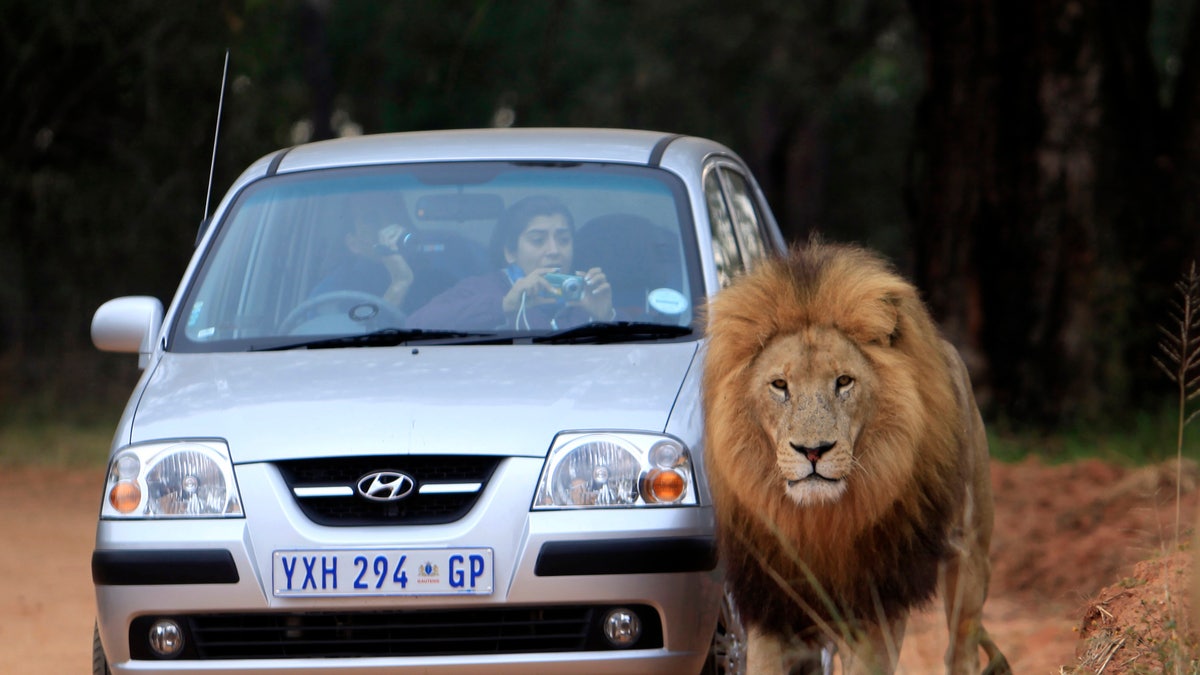
A male lion passes next to a vehicle with Argentinian supporters visiting the Lions Park near Johannesburg, June 10, 2010. REUTERS/Radu Sigheti (SOUTH AFRICA - Tags: IMAGES OF THE DAY ANIMALS SPORT SOCCER WORLD CUP) - RTR2EZJK (REUTERS/Radu Sigheti, File)
Tourists will soon be barred from petting lion cubs at a suburban wildlife park in South Africa, a move that reflects growing concern about the treatment of lions in captivity.
Tourist interaction with lions, including petting cubs and walking with the predators, has attracted negative publicity and is "going out of fashion," said Scott Simpson, spokesman for the 80-hectare (200-acre) Lion Park in Johannesburg.
Those activities will stop next month, when the Lion Park moves from suburban Johannesburg to a bigger area in the Hartbeespoort area, west of Pretoria, Simpson said Thursday. There, the focus will be on a "more authentic safari experience" in which tourists view wildlife on guided tours in vehicles, he said.
The Lion Park is one of a number of similar venues in South Africa that are bigger than a traditional zoo and allow animals greater freedom of movement, while guaranteeing that tourists get close-up viewing of predators that are often hard to spot in the wild.
However, many conservationists believe lion petting in special enclosures is detrimental to cubs, which don't learn how to survive in the wild and lose fear of humans, increasing the risk of an attack. Additionally, conservationists say, many lions bred in captivity end up in "canned hunting," in which customers shoot lions in relatively confined areas.
The Lion Park says its lions are not killed in "canned hunting" and are instead donated or sold to zoos and reserves, or looked after by park staff until they die of natural causes.
Ian Michler, maker of a documentary film called "Blood Lions ," welcomed the end of cub-petting at the Lion Park, but said breeding lions in captivity serves no conservation purpose.
"It's merely entertainment for profit," Michler said.
